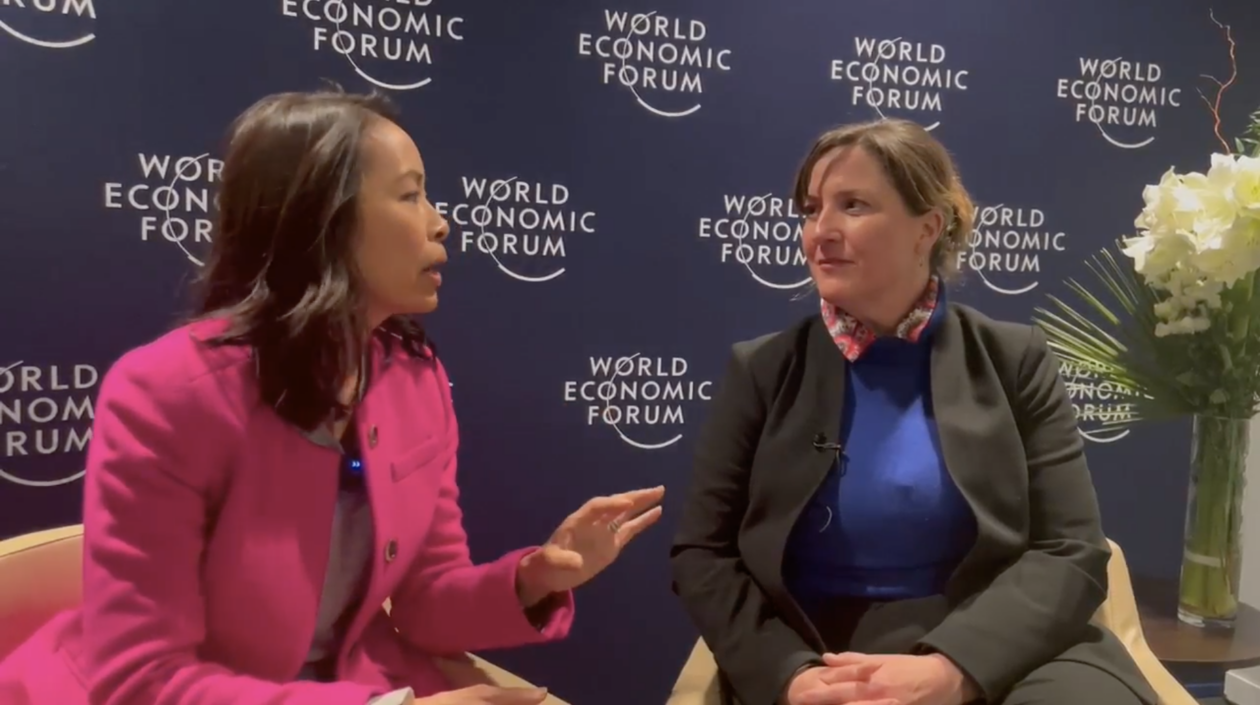Changpeng Zhao, the chief executive officer of Binance, the world’s biggest crypto exchange, said in a talk at Davos that the industry now needs to focus on the evolution and promise of blockchain technology itself.
The World Economic Forum’s Head of Blockchain and Digital Assets Brynly Llyr shared similar views, especially around blockchain applications in sustainability efforts and the environment.
In an interview at Davos with Forkast.News Editor-in-Chief Angie Lau, Llyr argued that 2023 should see more real-world adoption of blockchain technology. The following Q&A has been edited for clarity and length.
Angie Lau: What do you think the trending issues are and what’s top of mind for people post-Davos?
Brynly Llyr: I would say the through line has been about case studies, real world case studies, enough of the technical theory, although that’s interesting. It is time to really showcase the real use cases that we see today.
Lau: I thought one of the biggest takeaways was interoperability. There are different ecosystems, and yet we’re all participating in a global digital economy. So when it comes to migrating from the old world to the new, if that interoperability doesn’t exist is liquidity going to be trapped in the old ecosystem?
Llyr: Yes. I think that’s exactly right. And this is where the work comes in and why the forum is so useful, because we bring together these different voices to come up with that interoperability solution. Because we are not small villages kept to ourselves, we are global.
Lau: The year 2022 started with Terra Luna and then ended with FTX. I note that financial institutions might have withdrawn interest in cryptocurrencies as a speculative alternative asset, but they did not withdraw their interest in investing in blockchain. The technology didn’t fail.
Llyr: It is about what the blockchain can enable, what is possible, and I still see a lot of enthusiasm around there. This goes back to the work that we’re doing at the forum related to crypto impact. So we’re working with entrepreneurs around the world and in the U.S., right now we’re focused on the U.S. We’re going to expand it. We see a number of use cases and a number of developers that continue to be energized and to continue working on these projects. And I think you still see money coming into them.
Lau: As new participants enter this space, how do you ensure a move to the digital economy that embraces more than the few?
Llyr: One, do we all need to be corralled together? Maybe, maybe not. I mean, some of the benefit of a decentralized system is that you get a lot of different viewpoints and a lot of diversity in what is being developed. So I think there is something to be said for keeping that diversity. We shouldn’t all be at one single file line. The other is, how will we get there? I think we follow the path of the user. I think when people realize that using these products make a difference in their lives and they start using them and we see where the adoption is, that’s where we go.
Lau: Where is 2023 headed for you as you lead these global conversations?
Llyr: I see some really interesting work in the area of sustainability and environment. We’ve already been focused on that, but I’ve made connections this week that make me even more excited about that. Food security, I think, is very much related. Some really interesting ideas coming out of that and proof of concepts and many people that are interested in trying out some really interesting business cases. So I think this is going to be a year of real action, development, study and research.





